Technical Reports Environment
This page lists technical reports of PIARC in the field of environment. These publications are classified chronologically.
-
Positive Energy Roads
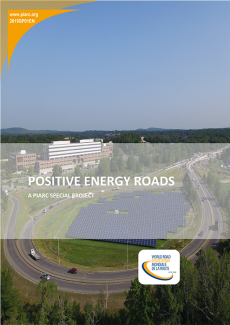
Transport infrastructure, and particularly road infrastructure, is critical to the economic growth of countries and as such attracts significant investment. The social and economic benefits of providing road infrastructure are well documented, but it is increasingly being recognised that the processes by which the infrastructure is designed, constructed, maintained and operated also need to minimise negative impacts such as pollution and greenhouse gas emissions. A key challenge for road transport [...]
-
Electric road systems: a solution for the future?
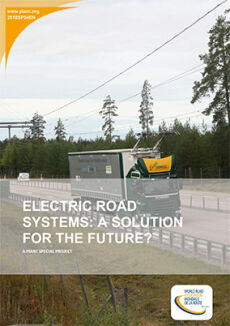
It is looking increasing likely that electric vehicles will play a major role in the future of road transport. While commercial electric vehicles exist their uptake has been limited due to high purchase costs, limited battery range, and a lack of charging convenience. Furthermore, while developments are underway, electric and hybrid drive trains are yet to be efficiently integrated with heavy goods vehicles (HGVs). A novel way to overcome such challenges are Electric Road Systems; a branch of technologies [...]
-
Appraisal of Sustainability of Transport Infrastructure Plans and Programs
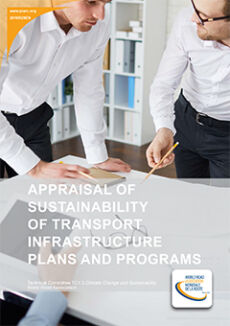
This report gives a scanning overview of the current state of the art on the topic of the appraisal of sustainability within the development of transport plans and investment programs, respectively the extent to which decisions made in this context have taken account of sustainability. The report is based on the result of a questionnaire done within the technical committee and structured around survey findings and case studies. The scope of this technical report was investigated how the sustainability [...]
-
Transport Strategies for Climate Change Mitigation and Adaptation
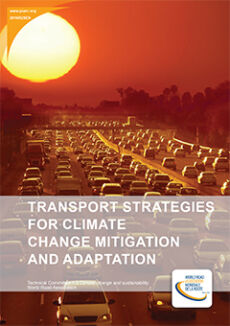
The transport sector is a major and quickly growing source of greenhouse gas emissions. Since 1970, greenhouse gas emissions from the transportation sector have more than doubled, increasing at a faster rate than any other end-use sector, and on-road greenhouse gas emissions have more than tripled, accounting for about 80 percent of the increase in total transport greenhouse gas emissions. Global transport greenhouse gas emissions are expected to increase faster than other sectors without aggressive [...]
-
International climate change adaptation framework for road infrastructure
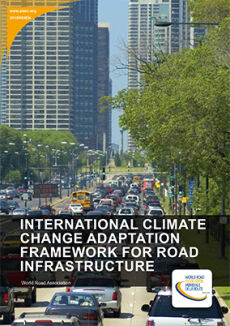
Actions undertaken to mitigate the negative effects of climate change on road networks have varied from one country to another. They include legal, regulatory and institutional measures; promoting other transport modes; introducing new, green technologies; undertaking permanent supervision of embankments and slopes to reduce risks of collapse, accidents and interruptions of service, as well as developing new methodologies and analytical tools to identify, assess and mitigate risks and thus reduce [...]